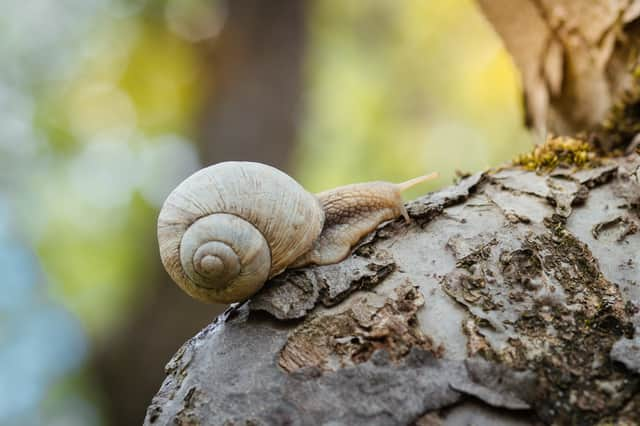How to keep those pesky garden pests from destroying your plants this summer


Green-fingered Brits have been warned to protect their plants from seven of the most prolific pests this spring and summer.
Horticulture experts from GardeningExpress.co.uk have revealed the pesky bugs that can do the most damage to crops, and advised on how to identify them and get rid of them without using harmful pesticides.
Box tree moth
Advertisement
Hide AdAdvertisement
Hide AdIn their prime from April to October, box tree caterpillars feed within webbing and can completely destroy all of the foliage on box plants.To stop the damage, remove the caterpillars by hand.
Ants
Ant nests can cause damage to lawns and flowerpots as small heaps of soil appear above the surface.
Ants are best left alone, but you can brush away the soil heaps on a dry day.
Slugs and snails
Slugs and snails can cause real damage in the garden as they eat their way through leaves, flowers, stems, and bulbs.
Advertisement
Hide AdAdvertisement
Hide AdUse eggshells, copper tape or sand as natural ways to get rid of these pests.
Woolly aphid
Woolly aphids hide under white fluff on apple tree trunks and branches, and attack the bark by sucking the tree’s sap, which weakens it.
To control an infestation on smaller trees, scrub the aphid colonies with a stiff-bristled brush.
Vine weevil
Adult weevils eat leaves during spring and summer, but the grubs cause the most damage over autumn and winter as they feed on plant roots.
Advertisement
Hide AdAdvertisement
Hide AdTake a torch out an hour or so after dark and pick them off by hand before placing them in a jar of water, as they cannot swim.
You can also place a two centimetre layer of grit on the compost surface to make it hard for the adults to lay eggs.
Southern green shield bug
This species can cause damage to some vegetables, especially runner and French bean pods, as it feeds on the sap.
Perhaps surprisingly, you can use the hose attachment on a vacuum cleaner to suck up the bugs from the affected plant, but remember to replace your vacuum bag or clean it out thoroughly afterwards.
You can also spread fly tape around plants so catch them.
Capsid bug
Advertisement
Hide AdAdvertisement
Hide AdThese are sap-sucking insects that prefer to feed on the new growth of plants, and are most active between May and August.
Organic sprays containing natural pyrethrum will kill them and other insects.